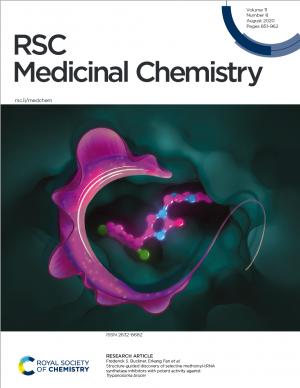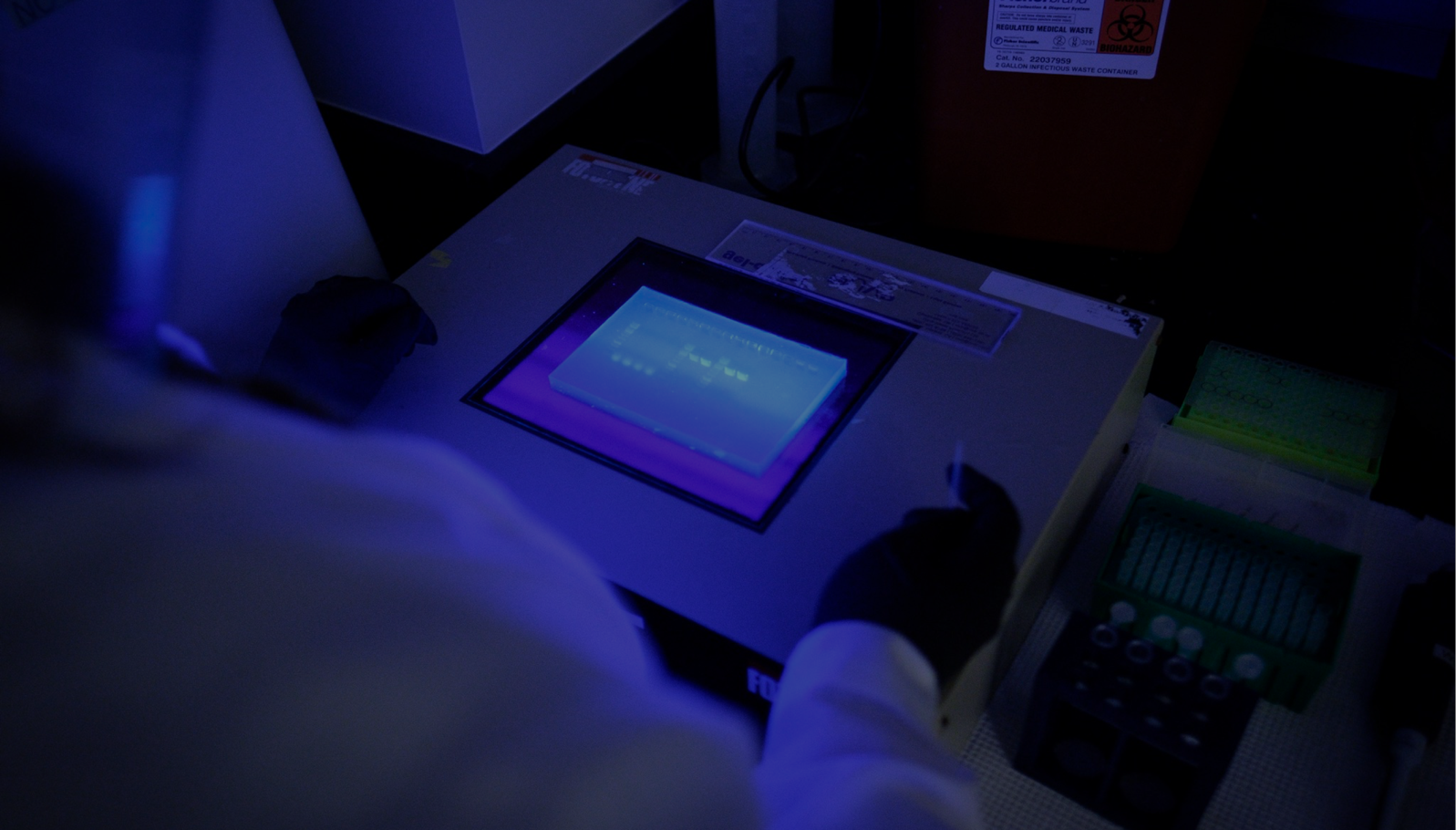Overview
Dr. Buckner’s laboratory works on protozoan pathogens that cause tropical diseases including trypanosomiasis, Chagas disease, Leishmaniasis, and Malaria. The research aims to discover much needed new drugs to help manage these challenging diseases.
Dr. Buckner's research concentrates on drug discovery for diseases caused by pathogenic protozoa. These include Trypanosoma cruzi (the cause of Chagas disease), Trypanosoma brucei (the cause of African sleeping sickness), Leishmania species (the cause of leishmaniasis), and Plasmodium falciparum (the cause of malignant malaria). The lab focuses mainly on several biochemical targets for developing antiparasitic drugs including sterol biosynthesis, protein prenylation, protein synthesis, and protein kinases.
 The lab's work was recently highlighted in the August 2020 issue of Royal Society of Chemistry (RCS) Medicinal Chemistry journal. The article, featured as the issue's cover, is titled "Structure-guided discovery of selective methionyl-tRNA synthetase inhibitors with potent activity against Trypanosoma brucei". Co-author and long time collaborator Ximena Barros-Álvarez designed the cover's image with her associate Ouliana Panova, both researchers at Stanford University.
The lab's work was recently highlighted in the August 2020 issue of Royal Society of Chemistry (RCS) Medicinal Chemistry journal. The article, featured as the issue's cover, is titled "Structure-guided discovery of selective methionyl-tRNA synthetase inhibitors with potent activity against Trypanosoma brucei". Co-author and long time collaborator Ximena Barros-Álvarez designed the cover's image with her associate Ouliana Panova, both researchers at Stanford University.
The lab's general approach for developing antiparasitic drugs is to use molecular biology techniques to study enzymes involved in these pathways. This requires the molecular cloning and heterologous expression of these proteins. The enzymes are then characterized functionally and, in some cases, subjected to structural analysis by X-ray crystallography. The 3-dimensional structures are used to model molecules that can serve as enzyme inhibitors.
The molecular and parasitology work are conducted in Dr. Buckner's laboratory. The X-ray crystallography and computer modeling work is done in collaboration with Dr. Wim Hol (UW Dept. of Biochemistry). The enzymology and organic synthesis of inhibitors is done by Dr. Michael Gelb's group in the UW Dept. of Chemistry. Inhibitors are tested for in vitro activity against enzyme targets and against the parasites grown in culture. Leads are refined by molecular modeling approaches (rational drug design). The compounds with the best antiparasitic activity and least toxicity to mammalian cells undergo testing in mouse models of these infectious diseases.
The assembled team at UW working on anti-parasitic drug development represents one of the few collaborative efforts in the world dedicated to rational drug discovery for tropical pathogenic protozoa, and includes Dr. Hol and Dr. Van Voorhis, from the training faculty.

Principle Investigator



